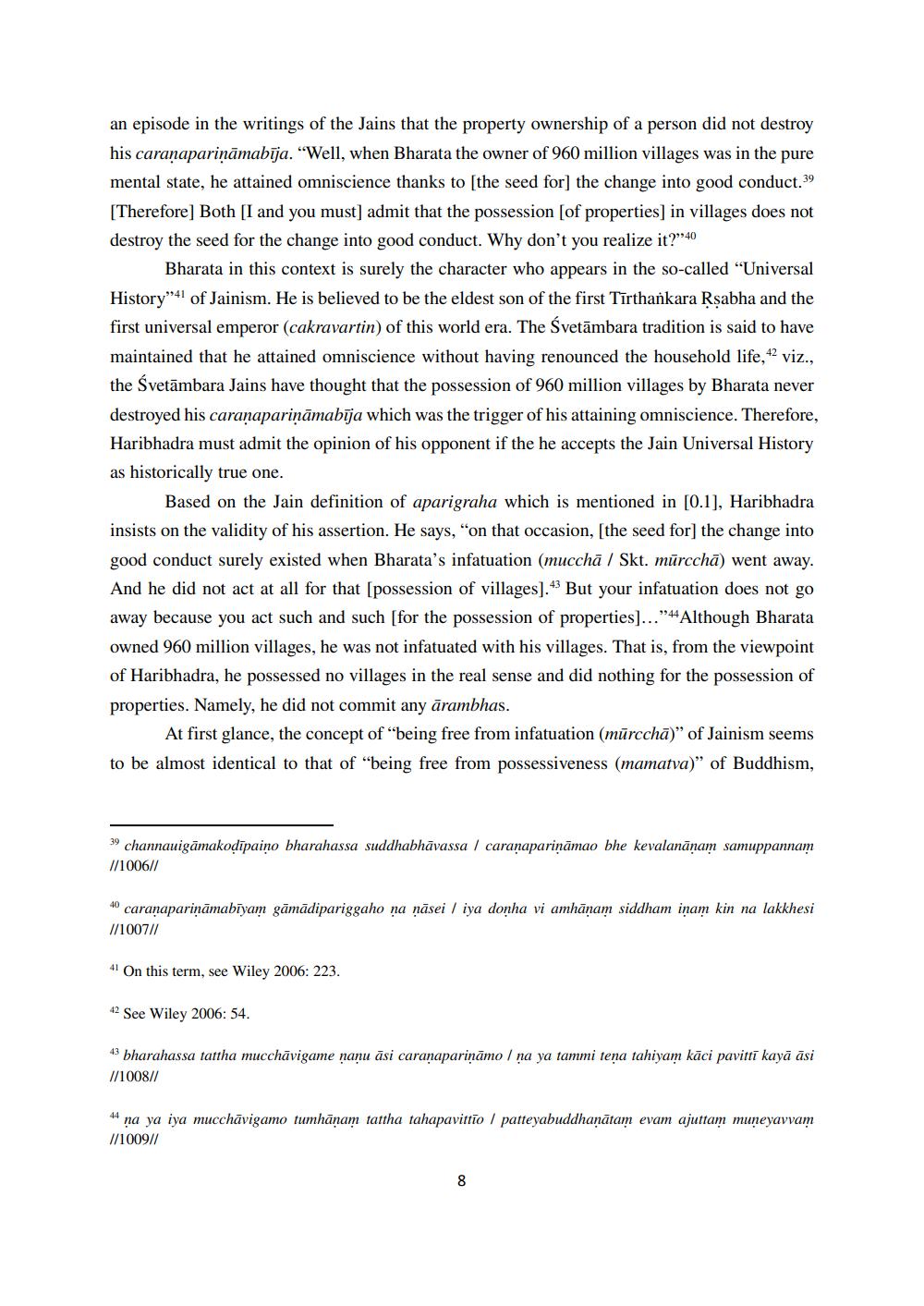Book Title: Haribhadra On Property Ownership Of Buddhist Monk Author(s): Yutaka Kawasaki Publisher: Yutaka Kawasaki View full book textPage 8
________________ an episode in the writings of the Jains that the property ownership of a person did not destroy his caranapariņāmabīja. "Well, when Bharata the owner of 960 million villages was in the pure mental state, he attained omniscience thanks to the seed for the change into good conduct. 39 [Therefore] Both [I and you must] admit that the possession [of properties] in villages does not destroy the seed for the change into good conduct. Why don't you realize it?":40 Bharata in this context is surely the character who appears in the so-called “Universal History"41 of Jainism. He is believed to be the eldest son of the first Tīrthankara Rsabha and the first universal emperor (cakravartin) of this world era. The Svetāmbara tradition is said to have maintained that he attained omniscience without having renounced the household life, 42 viz., the Svetāmbara Jains have thought that the possession of 960 million villages by Bharata never destroyed his caraṇapariņāmabīja which was the trigger of his attaining omniscience. Therefore, Haribhadra must admit the opinion of his opponent if the he accepts the Jain Universal History as historically true one. Based on the Jain definition of aparigraha which is mentioned in [0.1], Haribhadra insists on the validity of his assertion. He says, "on that occasion, [the seed for the change into good conduct surely existed when Bharata's infatuation (mucchā / Skt. mūrcchā) went away. And he did not act at all for that [possession of villages].*But your infatuation does not go away because you act such and such [for the possession of properties]..."44 Although Bharata owned 960 million villages, he was not infatuated with his villages. That is, from the viewpoint of Haribhadra, he possessed no villages in the real sense and did nothing for the possession of properties. Namely, he did not commit any ārambhas. At first glance, the concept of "being free from infatuation (mūrocha)" of Jainism seems to be almost identical to that of being free from possessiveness (mamatva)" of Buddhism, 39 channauigāmakodīpaino bharahassa suddhabhāvassa / caranaparināmao bhe kevalanānam samuppannam //1006/1 40 caranaparināmabīyam gāmādipariggaho na nāsei / iya donha vi amhānam siddham inam kin na lakkhesi //100711 41 On this term, see Wiley 2006: 223. 42 See Wiley 2006: 54. 43 bharahassa tattha mucchāvigame nanu āsi caranaparināmo / na ya tammi tena tahiyam kāci pavittī kayā āsi //1008/1 44 na ya iya mucchāvigamo tumhānam tattha tahapavittīo / patteyabuddhaņātam evam ajuttam muneyavvam //100911Page Navigation
1 ... 6 7 8 9 10 11 12
